Digital Marketing Vs Affiliate Marketing: Get To Know Which Is Right For You?
In the vast world of online marketing, there are many strategies to choose from. Two popular options are Digital Marketing and Affiliate Marketing. So, what exactly are the differences between these two approaches? Let’s dive in and find out!
Digital Marketing involves promoting products or services using various digital channels like search engines, social media, email, and more. It’s like unleashing the power of the internet to reach your target audience and convert them into customers. It encompasses a wide range of tactics such as SEO, content marketing, PPC advertising, and social media marketing.
On the other hand, Affiliate Marketing is a performance-based model where individuals or businesses earn commission by promoting other people’s products or services. Affiliates use unique referral links or codes to track sales and earn a percentage of the revenue generated through their efforts. It’s like being an online salesperson, but without the hassle of inventory or customer support.
So, why should you care about the differences between Digital Marketing and Affiliate Marketing? Well, understanding these approaches can help you decide which path to take when it comes to growing your online presence and making money online. Whether you want to build your own brand or earn passive income through affiliate partnerships, there’s a strategy that suits your goals.
Now that we have an overview, let’s explore the world of Digital Marketing and Affiliate Marketing in more detail. We’ll delve into the benefits, challenges, and key strategies associated with each approach. By the end, you’ll have a clearer understanding of how these marketing methods can work for you. So, let’s jump in and unlock the secrets to success in the ever-evolving digital landscape!
1. Scope: Digital marketing encompasses a wide range of tactics like SEO and content marketing, while Affiliate marketing focuses on promoting products through affiliates.
2. Cost: Digital marketing often requires a significant budget, while affiliate marketing allows businesses to pay commissions only when a sale is made.
3. Control: With digital marketing, businesses have full control over their campaigns, while in affiliate marketing, affiliates have some control over promotion.
4. Reach: Digital marketing reaches a broader audience through various channels, while affiliate marketing leverages the reach of individual affiliates.
5. Revenue: Digital marketing can generate direct sales and brand exposure, while affiliate marketing focuses on generating revenue through commissions.
Each approach has its advantages, so choose the one that aligns with your goals and resources.
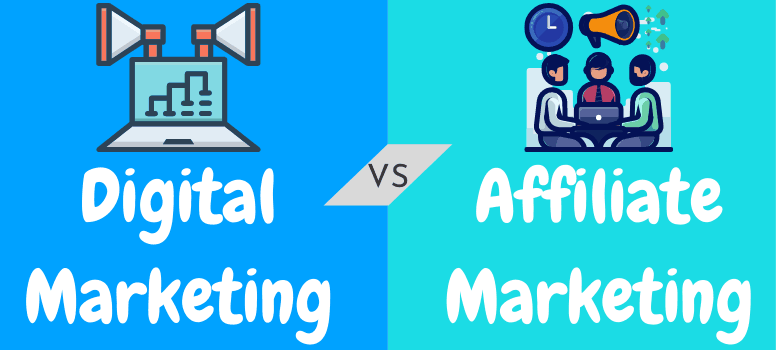
Key Takeaways: Digital Marketing Vs Affiliate Marketing
1. Digital marketing involves promoting products or services using various online channels, while affiliate marketing focuses on promoting someone else’s products to earn a commission.
2. In digital marketing, businesses use strategies like SEO and social media advertising to target a wider audience, while in affiliate marketing, individuals earn through referrals and recommendations.
3. Companies use digital marketing to build their brand and increase sales, while affiliate marketers earn by driving traffic and generating sales for others.
4. Digital marketing requires a team or agency to execute campaigns, while affiliate marketing can be done by individuals from anywhere in the world.
5. Both digital marketing and affiliate marketing play crucial roles in today’s online landscape, offering different opportunities for businesses and individuals alike.
Remember:
Focus on engaging writing and optimize the article for search engines, emphasizing readability and clarity for a wide audience. Use HTML div class tags to highlight the key takeaways.
Comparing Digital Marketing Vs Affiliate Marketing
With the growth of the internet and the rise of online commerce, digital marketing and affiliate marketing have become essential strategies for businesses to reach and engage with their target audiences. Both approaches offer unique benefits and can contribute to the success of a company’s marketing efforts. In this article, we will explore the key differences between digital marketing and affiliate marketing, examining their features, user experiences, pros and cons, and price points. Let’s delve into the fascinating world of these marketing strategies and discover which one might be better suited for your business.
Overview of Digital Marketing
Digital marketing encompasses a vast range of online marketing tactics and strategies aimed at promoting a brand, product, or service. It leverages the power of digital channels such as search engines, social media platforms, email marketing, content marketing, and more to connect with target audiences and drive desired actions. The goal of digital marketing is to increase brand visibility, generate leads, and ultimately drive conversions.
With digital marketing, businesses have a wide array of tools and techniques at their disposal to engage with their target audience. From search engine optimization (SEO) to pay-per-click (PPC) advertising, social media marketing to email campaigns, the options are endless.
One of the key advantages of digital marketing is its ability to track and measure results accurately. With analytics tools and data-driven insights, businesses can gauge the effectiveness of their marketing efforts and make data-backed decisions to optimize their strategies for better results.
Overview of Affiliate Marketing
Affiliate marketing is a performance-based marketing model in which businesses collaborate with individuals or third-party websites (affiliates) to promote their products or services. Affiliates earn a commission for every successful referral or sale generated through their marketing efforts. It is a win-win situation, benefiting both the business and the affiliate.
The core concept of affiliate marketing revolves around the idea of sharing revenues. Affiliates use various marketing techniques such as blog posts, product reviews, social media promotion, and email campaigns to drive traffic and conversions for the businesses they are affiliated with. The more successful referrals or sales they generate, the more commission they earn.
Affiliate marketing is particularly attractive to businesses as it offers a cost-effective way to reach new audiences and expand their customer base. It allows businesses to tap into the influence and reach of affiliates, leveraging their established online presence to generate leads and sales.
Key Features Compared
Targeting and Reach
In terms of targeting and reach, digital marketing offers a broader scope. With various digital channels available, businesses can tailor their marketing efforts to specific demographics, interests, and behaviors. The ability to target specific audiences based on data-driven insights allows businesses to create personalized and relevant campaigns, maximizing their reach and engagement.
Affiliate marketing, on the other hand, relies on the reach and influence of affiliates. The targeting is indirect, as affiliates typically have their own established audiences. While this can be advantageous in terms of reaching niche or specialized audiences, it may not provide the same level of precision as digital marketing.
Winner: Digital Marketing
Cost and ROI
When it comes to cost and return on investment (ROI), affiliate marketing typically has a more straightforward cost structure. Businesses only pay affiliates when they successfully generate a referral or sale, reducing the risk of investing in marketing campaigns that may not deliver results.
Digital marketing, on the other hand, can involve various costs such as advertising spend, content creation, marketing tools, and marketing team salaries. While digital marketing campaigns can offer high ROI when executed effectively, there is a greater upfront investment compared to affiliate marketing.
Winner: Affiliate Marketing
Control and Flexibility
Control and flexibility are important factors to consider when comparing these marketing strategies. In digital marketing, businesses have complete control over their campaigns, from the messaging and creative elements to the targeting and timing. This level of control allows businesses to adapt their strategies quickly and make adjustments based on real-time data.
In affiliate marketing, businesses have less control over how their products or services are promoted. While they can provide guidelines and assets to their affiliates, the actual implementation and messaging are in the hands of the affiliates. This lack of control may be a disadvantage for businesses that prioritize brand consistency and messaging.
Winner: Digital Marketing
User Experience
Both digital marketing and affiliate marketing can provide positive user experiences when executed effectively. In digital marketing, businesses can create personalized and targeted experiences for their audience, delivering relevant content and offers based on their preferences and behaviors. This can result in increased engagement and conversions.
Affiliate marketing relies on the trust and credibility of the affiliates. When affiliates promote products or services that align with their audience’s interests and needs, it enhances the user experience. However, if affiliates promote irrelevant or low-quality products, it can have a negative impact on the user experience.
Winner: Tie
Pros and Cons
Digital Marketing: Pros and Cons
Pros:
- Extensive targeting options based on demographics, interests, and behaviors
- Ability to track and measure campaign performance
- Flexibility to make adjustments and optimize campaigns in real-time
Cons:
- Higher upfront investment compared to affiliate marketing
- Competition for audience attention in crowded digital platforms
- Requires ongoing monitoring and optimization for effective results
Affiliate Marketing: Pros and Cons
Pros:
- Cost-effective as businesses only pay for successful referrals or sales
- Access to niche or specialized audiences through affiliates
- Opportunity to leverage the reach and influence of affiliates
Cons:
- Lack of control over messaging and brand consistency
- Risk of affiliates promoting irrelevant or low-quality products
- Reliance on the effectiveness and reputation of affiliates
Price Comparison
When comparing the price points of digital marketing and affiliate marketing, it is important to consider the specific expenses involved. Digital marketing can have various costs such as advertising spend, content creation, marketing tools, and team salaries, which can add up depending on the scale and complexity of the campaigns.
In affiliate marketing, businesses typically pay a commission percentage for every referral or sale generated through affiliates. The commission rate can vary, ranging from a few percent to a significant percentage of the sale value.
Ultimately, the price comparison will depend on the specific marketing goals, target audience, and resources available to businesses.
Comparison Table: Digital Marketing vs. Affiliate Marketing
| Feature | Digital Marketing | Affiliate Marketing |
|---|---|---|
| Targeting and Reach | Broad targeting options | Indirect targeting through affiliates |
| Cost and ROI | Higher upfront investment | Cost-effective pay-for-performance |
| Control and Flexibility | Full control over campaigns | Less control over messaging and implementation |
| User Experience | Personalized and targeted experiences | Affiliate-dependent experience |
| Pros | Extensive targeting, trackable performance, flexibility | Cost-effective, access to niche audiences, leverage affiliates’ reach |
| Cons | Higher upfront investment, competition for attention, ongoing optimization required | Lack of control, risk of irrelevant promotions, reliance on affiliates |
Which is better – Digital Marketing vs. Affiliate Marketing?
Deciding which marketing strategy is better for your business depends on your specific goals, target audience, and available resources. Both digital marketing and affiliate marketing offer unique advantages, and the decision should be based on a thorough evaluation of your business objectives and marketing needs.
However, if we were to choose a winner based on the overall versatility, control, and potential for high ROI, digital marketing takes the lead. With its wide array of targeting options, tracking capabilities, and the ability to adapt and optimize campaigns in real-time, digital marketing provides businesses with the flexibility and control needed to reach their desired audience effectively.
Here are three reasons why digital marketing may be the preferred choice for many businesses:
- Targeted Reach: Digital marketing offers extensive targeting options that allow businesses to reach specific demographics, interests, and behaviors. By delivering personalized and relevant content, businesses can maximize engagement and conversions.
- Trackable Performance: With analytics tools and data-driven insights, businesses can track and measure the performance of their digital marketing campaigns. This enables them to make data-backed decisions to optimize their strategies and increase the ROI.
- Flexibility and Adaptability: Digital marketing allows businesses to make real-time adjustments and optimizations to their campaigns. They can experiment with different messaging, creative elements, and targeting parameters to find the most effective approach for their target audience.
Ultimately, the choice between digital marketing and affiliate marketing depends on your business’s specific needs and objectives. Assessing your target audience, marketing goals, budget, and available resources will help you make an informed decision that aligns with your business strategy.
Frequently Asked Questions
Looking to understand the difference between digital marketing and affiliate marketing? Here are answers to some common questions:
1. How does digital marketing differ from affiliate marketing?
Digital marketing is a broad term that encompasses various strategies and tactics used to promote products or services online. It includes activities such as search engine optimization (SEO), social media marketing, email marketing, and content marketing. On the other hand, affiliate marketing is a specific type of digital marketing where individuals or companies promote products or services on behalf of a brand and earn a commission for each sale or lead they generate.
While digital marketing covers a wide range of online marketing techniques, affiliate marketing focuses specifically on generating sales and leads through referrals.
2. What are the key benefits of digital marketing compared to affiliate marketing?
One of the key benefits of digital marketing is its versatility. With digital marketing, businesses have the flexibility to choose from a variety of strategies based on their goals, target audience, and budget. They can leverage multiple channels, such as search engines, social media, and email, to reach their target customers and build brand awareness. Digital marketing also allows for more control over the messaging and creative elements of the marketing campaigns.
On the other hand, one of the main benefits of affiliate marketing is that businesses can leverage the marketing efforts of others to promote their products or services. This means they can tap into an existing network of affiliates who have their own audience and can drive traffic and sales. Affiliate marketing can be a cost-effective way to reach a broader audience and increase sales without having to invest heavily in marketing campaigns.
3. Which strategy is more suitable for small businesses: digital marketing or affiliate marketing?
Both digital marketing and affiliate marketing can be effective for small businesses, but the choice depends on various factors. Small businesses with limited budgets and resources may find affiliate marketing to be a more cost-effective option. By partnering with affiliates, they can benefit from the exposure to a wider audience without having to bear the full cost of marketing campaigns.
However, digital marketing provides small businesses with the opportunity to directly engage with their target audience through channels like social media and email. It allows them to build brand loyalty, establish credibility, and drive targeted traffic to their website. Small businesses should assess their goals, target audience, and available resources to determine which strategy aligns better with their objectives.
4. Can digital marketing and affiliate marketing be used together?
Absolutely! In fact, combining digital marketing and affiliate marketing can often result in a comprehensive and effective marketing strategy. Digital marketing techniques can be used to build brand awareness, drive traffic, and capture leads. Affiliate marketing can then be utilized to leverage the efforts of affiliates to generate sales and increase revenue.
For example, a business can run social media ads or search engine marketing campaigns to attract potential customers to their website. Once on the website, they can engage those visitors through email marketing or content marketing. At the same time, they can recruit affiliates who can promote their products or services to their own audience and earn a commission for each sale. By integrating these strategies, businesses can maximize their reach and impact.
5. Which strategy is more suitable for long-term sustainability: digital marketing or affiliate marketing?
Both digital marketing and affiliate marketing have the potential for long-term sustainability, but they require different approaches. Digital marketing focuses on building a strong online presence, establishing brand authority, and nurturing customer relationships over time. It involves consistent content creation, social media engagement, and search engine optimization, among other strategies.
Affiliate marketing, on the other hand, relies on fostering relationships with affiliates who can continuously promote the business’s products or services. By building a network of loyal affiliates, businesses can ensure a steady stream of referrals and ongoing revenue. However, maintaining successful affiliate partnerships requires ongoing communication, providing affiliates with the necessary resources and support, and offering competitive commission rates.
Ultimately, the sustainability of either strategy depends on the business’s ability to adapt to evolving market trends, stay relevant to their target audience, and continuously optimize their marketing efforts.
Affiliate Marketing Vs Digital Marketing (The Differences)
Summary
So, to wrap it all up, we’ve learned about two important types of marketing: digital marketing and affiliate marketing.
Digital marketing is all about promoting products or services using online platforms like social media, email, and websites. It helps businesses reach a wider audience and can be a great way to connect with customers in the digital age.
On the other hand, affiliate marketing is when you promote other people’s products and earn a commission for every sale you make. It’s like being a middle person, connecting buyers and sellers and getting rewarded for your efforts.
Both digital marketing and affiliate marketing have their pros and cons. Digital marketing gives you more control over your own products, but affiliate marketing can be a great way to start earning money online with minimal investment.
No matter which path you choose, it’s important to remember that marketing is all about understanding and connecting with your audience. Whether you’re sharing your own products or promoting someone else’s, the key is to provide value and build trust with your customers.
So, whether you decide to dive into the world of digital marketing or explore the opportunities of affiliate marketing, remember to have fun, be creative, and keep learning along the way. Good luck!

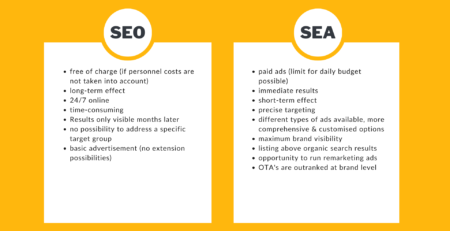
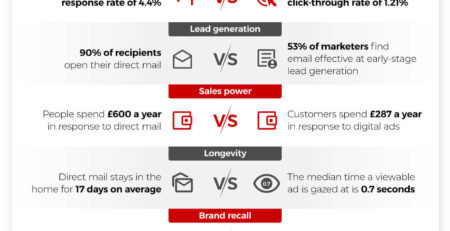
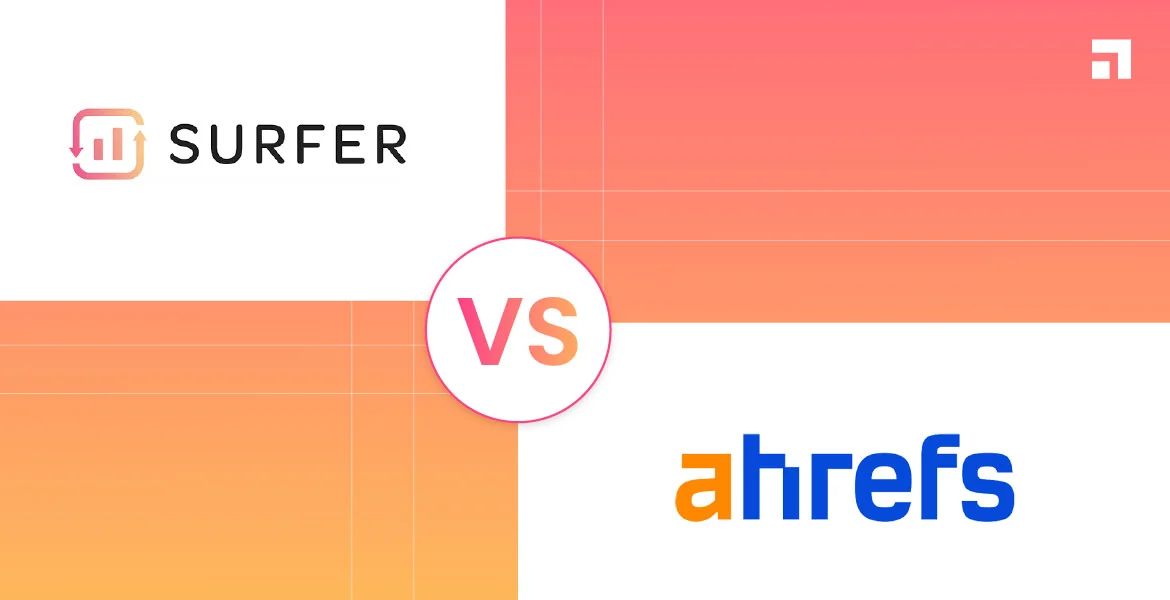

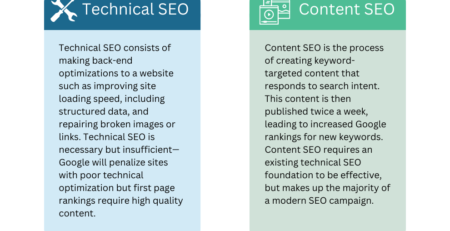
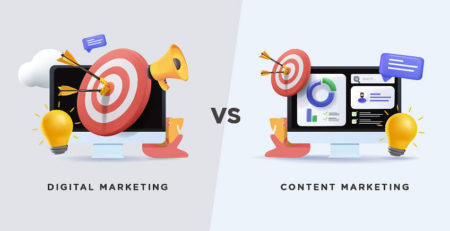

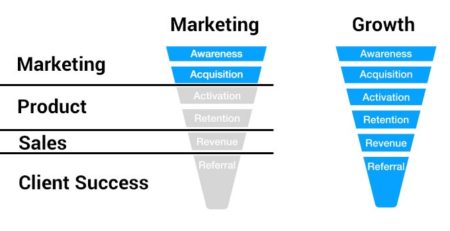
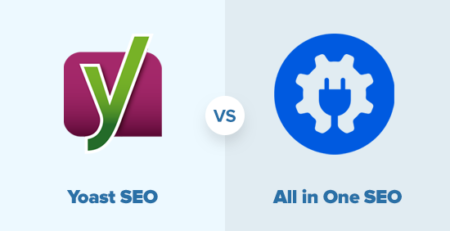
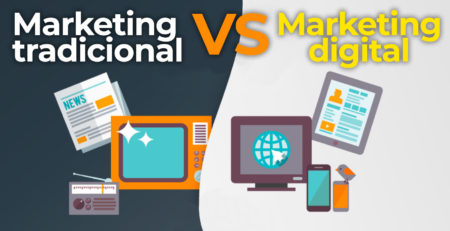
Leave a Reply